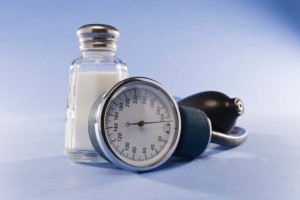Salt Can Be Bad For Your Overall Heart Health
 As part of a heart healthy lifestyle, you may be told to lower your sodium (salt) intake in order to reduce your risk of high blood pressure. However, salt may be bad for your heart health in ways you have never thought of before. A new study published in the Journal of the American College of Cardiology found that high salt intake may actually affect the structure and function of your heart and kidneys over time.
As part of a heart healthy lifestyle, you may be told to lower your sodium (salt) intake in order to reduce your risk of high blood pressure. However, salt may be bad for your heart health in ways you have never thought of before. A new study published in the Journal of the American College of Cardiology found that high salt intake may actually affect the structure and function of your heart and kidneys over time.
Researchers at the University of Delaware found that a high-salt meal plan may, over time, lead to problems with your immune system. This can make you more likely to get sick. It may also lead to lowered blood clotting and increased artery stiffness, which can put you at a high risk for heart attack and stroke. Even if you do not have high blood pressure, the researchers of this study say that high salt intake over time can lead to serious health problems. So talk to your healthcare provider about lowering your sodium intake to about 2300 milligrams a day, as suggested by the United States Department of Agriculture’s Dietary Guidelines.
One of the best ways to eat less salt is to lower your intake of processed foods, such as:
- Canned soups
- Deli meats
- Frozen meals
- Cold cereals
- Canned vegetables
- Bottled sauces and marinades
- Salty snacks like chips, popcorn, and pretzels
Instead, have plenty of fresh veggies, fruits, low-fat dairy, lean proteins, and whole grains. Use fresh herbs and low-sodium spices to flavor your foods so that you can keep your heart, and the body it supports, healthy and strong.

